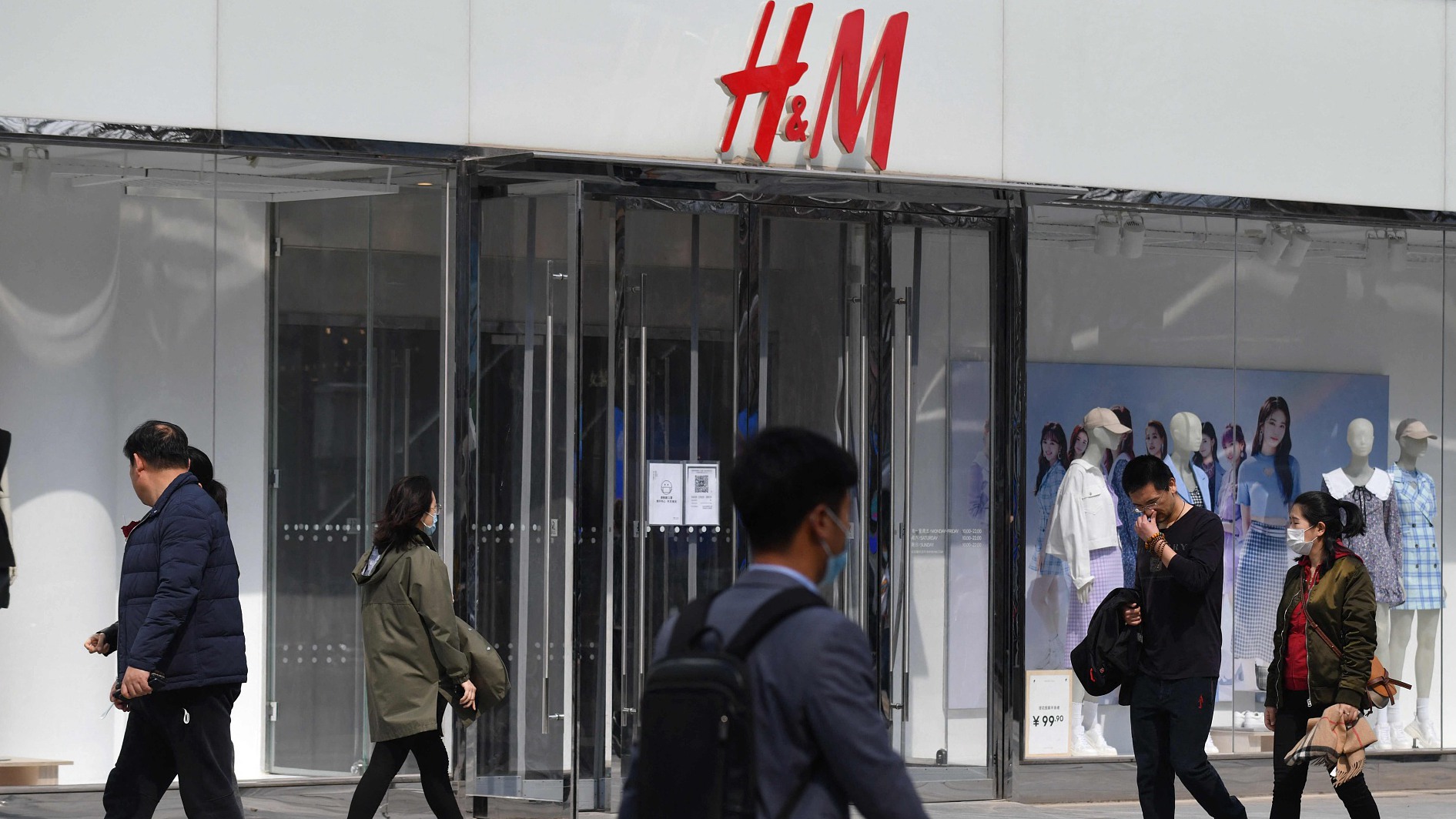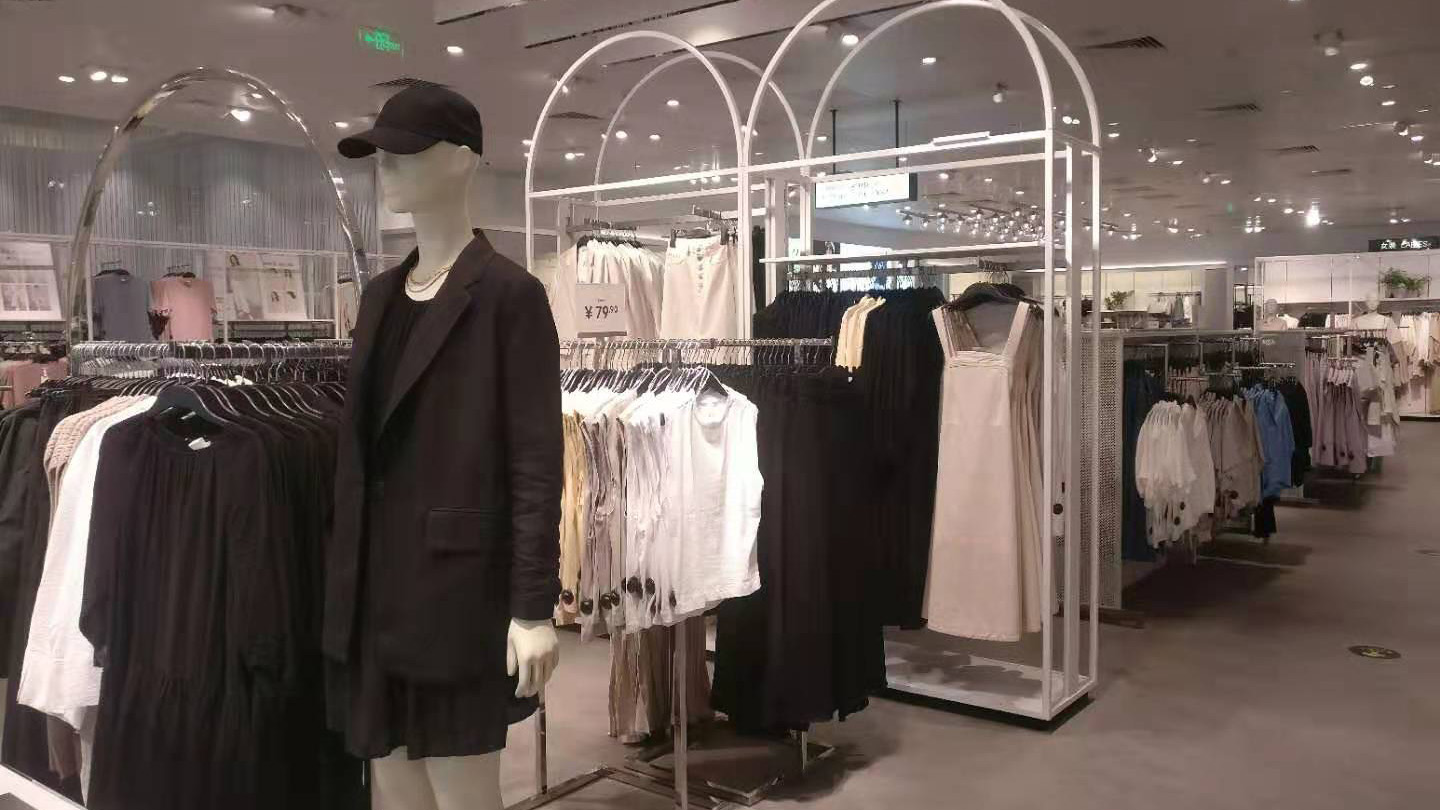01:41

China opposes any external forces interfering in China's internal affairs, including Xinjiang affairs, and opposes sanctions against relevant Chinese entities and individuals based on lies and false information in excuse of the "Xinjiang human rights issues," China's Ministry of Commerce (MOFCOM) said on Thursday.
It came after fashion retailer H&M and sportswear company Nike released statements on not using Xinjiang cotton due to the alleged "forced labor" in China's Xinjiang.
Multinational companies should respect market rules, correct mistakes, and avoid politicizing commercial issues, said MOFCOM spokesperson Gao Feng.
The Chinese government always welcomes and supports the normal business activities of multinational companies and appreciates their efforts in building the industrial chains, Gao said.
We welcome foreign companies to visit Xinjiang, and we are also willing to support companies from all over the world to carry out trade and investment in Xinjiang, Gao added.
Meanwhile, China Consumer Association, a national organization aiming to monitor goods and services, said the boycotts of Xinjiang's cotton by some multinational companies have violated the legitimate rights and interests of consumers and hurt the feelings of Chinese consumers.
Largest cotton-growing region
The China Cotton Association also said in a statement that the behaviors of several international brands severely hurt the reputation of the cotton industry in Xinjiang and the whole country.
The association firmly opposes any restrictions by Western countries, led by the United States, on textile and apparel supply chain of Xinjiang and related products, and strongly urges them to stop the wrong practices, according to the statement.
Xinjiang is the largest cotton-growing region in China, with an annual output of about 5 million tons, accounting for more than 80 percent of domestic cotton production.
Cotton has become the main source of income for local farmers in Xinjiang. More than 50 percent of farmers in Xinjiang grow cotton, of whom ethnic minorities account for more than 70 percent, said the statement.
01:47

Consumers are turning away
When CGTN visited one of H&M's flagship stores in downtown Beijing Thursday afternoon, the store was almost empty.
A consumer who passed by without going in told CGTN, "I read about it last night and as I passed by H&M today, I didn't even want to go in. It definitely affects what to buy in the future. If H&M continues to discriminate, I'll turn to others."
Another Beijing resident said, "I feel my feelings hurt, I feel H&M was acting on lies and false accusations and that hurts our feelings."
Some others say the pressure on international brands might mean a much-needed boost and growth for domestic brands.
"For my friends and I, we think there is now the consensus that if you boycott us, we will boycott you in return," a passenger surnamed Wang said. "This could be the chance that domestic brands pick up steam and win popularity."
(Sun Ye also contributed to the story)
(Cover: People walk past an H&M clothing store in Beijing, China, March 25, 2021. /CFP)

